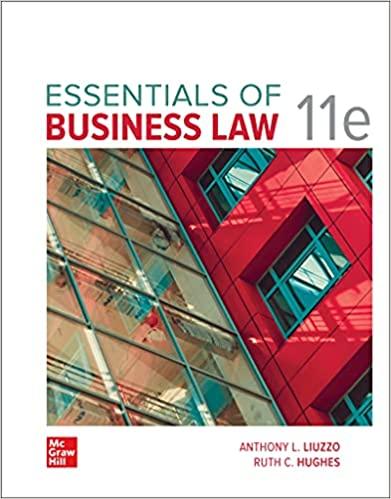Question
1. The common law has defined 'reasonable grounds for suspecting insolvency' as: A A positive feeling of actual apprehension and not mere speculation B Being
1. The common law has defined 'reasonable grounds for suspecting insolvency' as:
A
A positive feeling of actual apprehension and not mere speculation
B
Being unable to pay debts as and when they become due and payable
C
The steps that are taken to involve the secured creditor
D
A temporary lack of liquidity
2. If you had a director who was not attending any board meetings, never questioning any board decisions and failing to ensure that any person that they had delegated tasks to actually had the skill to perform those delegated tasks then:
A
That director would be disqualified from acting as a board member in the future
B
That director would most likely fail the requirements of diligence
C
That director would be considered to be responsible
D
3. Auditor's Reports are required under the Corporations Act to be sent with the Annual Financial Report and the Directors' Report to:
A
Members
B
Former members
C
Former auditors
D
4. An auditor can be removed by:
A
ASIC after they appoint a new auditor
B
A liquidator who has been appointed to wind up the company
C
A new auditor being appointed the impact of which cancels the first auditor's appointment and audit contract
D
5. A deed of company arrangement occurs:
A
Only when the directors vote to accept the deed
B
During a period where the company is being wound up by the court
C
Before a voluntary administration
D
After a voluntary administration and results in a better outcome for creditors
Step by Step Solution
There are 3 Steps involved in it
Step: 1

Get Instant Access to Expert-Tailored Solutions
See step-by-step solutions with expert insights and AI powered tools for academic success
Step: 2

Step: 3

Ace Your Homework with AI
Get the answers you need in no time with our AI-driven, step-by-step assistance
Get Started


